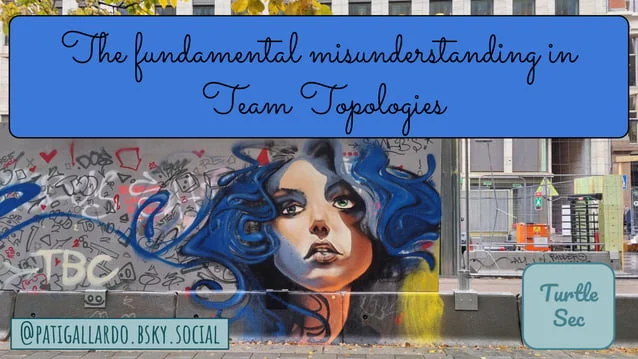How can you manage IT projects when it's never been more challenging?
You're always asked to do more with less, and with the latest enthusiasm for AI accelerating this imperative how can you make good judgement calls for shaping an organisation that will endure for many years to come?

It doesn't help that many consultancies are increasingly selling orders of magnitude increases in productivity whilst at the same time promising significant reductions in cost.
Accenture champions responsible AI, gains faster time to market with Azure AI Foundry
Early results have been positive. In this scenario, Accenture can reduce time to build AI applications by up to 50%. It sees potential for an overall efficiency and a potential for a 20% reduction in costs. "Azure foundry can accelerate our time to market," says Anoop Gopinatha.
Those numbers come from a non trivial number of use cases:
"75 generative AI use cases across clients, with over 16 solutions in full production"
But as Gergely Orosz highlights:
The reality as I hear is panic inside some of these companies because their costs are actually NOT down thanks to AI - but now because their biggest clients assume they are, they either need to:
- Get 20-30% more business (good luck)
- Cut costs by… firing people
The reality is AI *does* deliver incredible value, often delivering things that weren't previously feasible, but this value isn't evenly distributed and as many have pointed out hallucinations are real and distracting. Just as with previous new technologies, it takes time and effort to evaluate and take advantage of these new opportunities, less time and money than previously perhaps, but nevertheless that investment is needed to deliver lasting value.
Some examples of positive outcomes are from research and ideas in Joe Glover's Marketing Meetup, Nik Samokhvalov solving real world problems with postgres.ai and weekly YouTube podcast with Michael Christofides about PostgreSQL, there's innovative government backed research at the Department for Science, Innovation & Technology, plus Independent AI researcher Simon Willison who is at the leading edge of AI, fully open and sharing his findings on Blue Sky and his own blog.
Just as useful are the likes of Patricia Aas who has been successfully building products for over two decades and brings invaluable experience tempered with working at some of the largest organisations and high profile products.
Patricia has recently been highlighting fundamental misunderstanding in Team Topologies: Organizing Business and Technology Teams for Fast Flow by Matthew Skelton CEO of Conflux and co-author Manuel Pais (2019). Typical of many management methods that offer the promise of formalising something without understanding the many facets that are required to build a product, flexibly following evidence and at the same time with the tension of reality pulling in many directions. In essence development usually brings a change to an existing system, requiring an understanding of people, domain, organisations and technology. Many orgs have a good track record, others are less fortunate. It's useful to be able to share successes and this is where case studies, blogs and books can deliver the most value.
Managing development balances an organisations need for continuity with change, often spiced with divergent views, commercial reality and above all the personalities of everyone involved.
With so much at stake it's inevitable there will be a lot of snake oil on sale, many well meaning but ineffective individuals, and those who have succeeded for their very narrow niche often in serendipitous circumstances, so it's essential to have access to a breadth of quality information to make good judgement calls. This is where blogs from the likes of Patricia Aas are essential, not only in their critique, but also the engagement from industry experts sharing their perspective. No one size fits all so it's essential to be able to have a healthy debate in order to better understand a domain before making those critical judgement calls that will shape an organisation and it's future for many years to come.
Here's Patricia's slides and blog post:
A 165 post long thread with reactions on Blue Sky and Mastodon
Next year will be sixty years since Star Trek brought us - Tricorders - hand held multifunctional devices that can perform environmental scans, data recording, and data analysis. That fiction is now a reality.
The Future's almost here and it's accelerating
